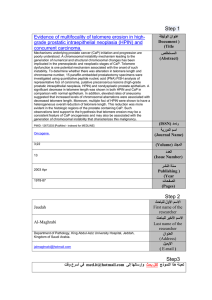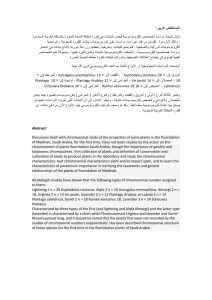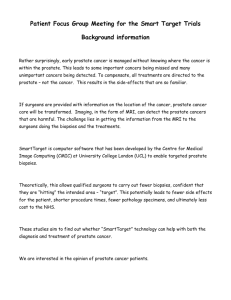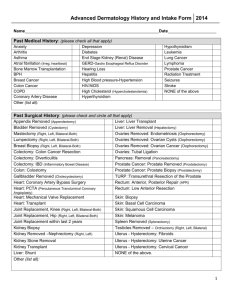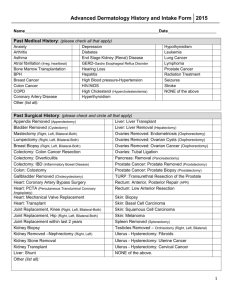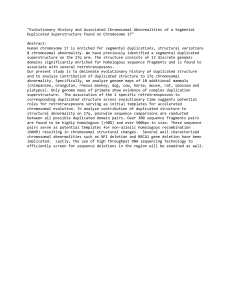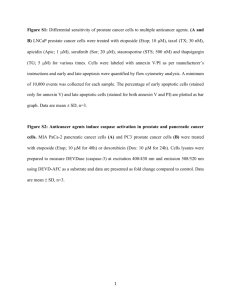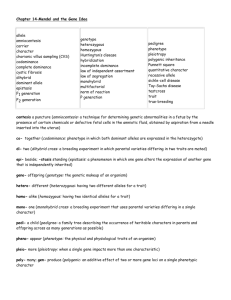عنوان الوثيقة (Document Title)
advertisement
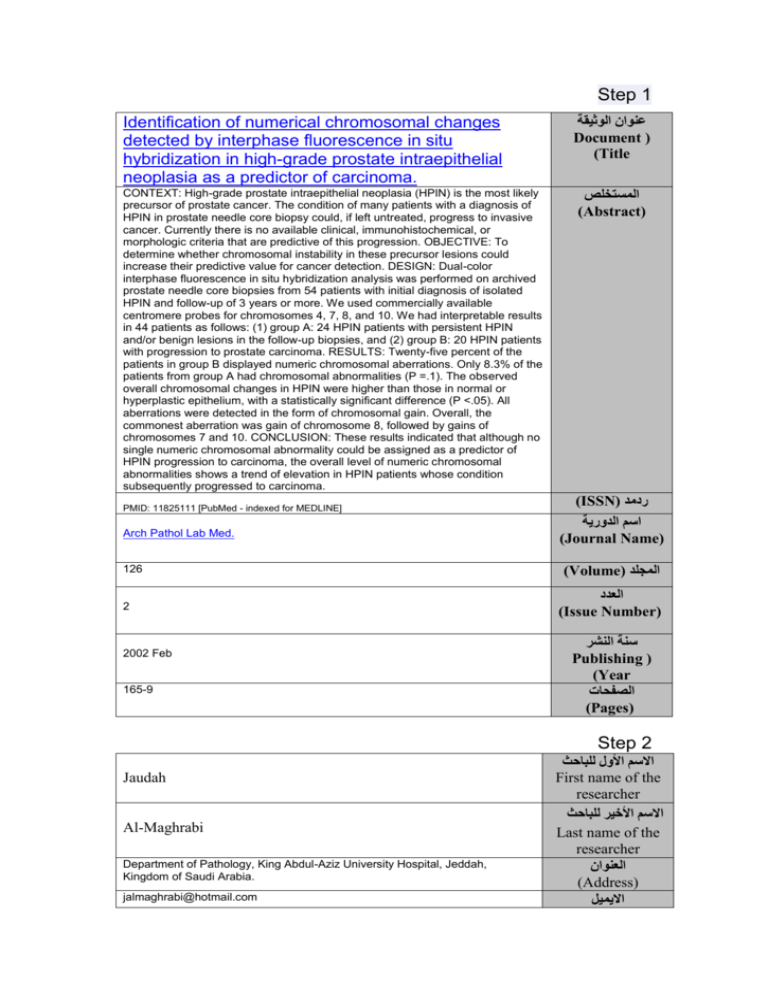
Step 1 Identification of numerical chromosomal changes detected by interphase fluorescence in situ hybridization in high-grade prostate intraepithelial neoplasia as a predictor of carcinoma. CONTEXT: High-grade prostate intraepithelial neoplasia (HPIN) is the most likely precursor of prostate cancer. The condition of many patients with a diagnosis of HPIN in prostate needle core biopsy could, if left untreated, progress to invasive cancer. Currently there is no available clinical, immunohistochemical, or morphologic criteria that are predictive of this progression. OBJECTIVE: To determine whether chromosomal instability in these precursor lesions could increase their predictive value for cancer detection. DESIGN: Dual-color interphase fluorescence in situ hybridization analysis was performed on archived prostate needle core biopsies from 54 patients with initial diagnosis of isolated HPIN and follow-up of 3 years or more. We used commercially available centromere probes for chromosomes 4, 7, 8, and 10. We had interpretable results in 44 patients as follows: (1) group A: 24 HPIN patients with persistent HPIN and/or benign lesions in the follow-up biopsies, and (2) group B: 20 HPIN patients with progression to prostate carcinoma. RESULTS: Twenty-five percent of the patients in group B displayed numeric chromosomal aberrations. Only 8.3% of the patients from group A had chromosomal abnormalities (P =.1). The observed overall chromosomal changes in HPIN were higher than those in normal or hyperplastic epithelium, with a statistically significant difference (P <.05). All aberrations were detected in the form of chromosomal gain. Overall, the commonest aberration was gain of chromosome 8, followed by gains of chromosomes 7 and 10. CONCLUSION: These results indicated that although no single numeric chromosomal abnormality could be assigned as a predictor of HPIN progression to carcinoma, the overall level of numeric chromosomal abnormalities shows a trend of elevation in HPIN patients whose condition subsequently progressed to carcinoma. PMID: 11825111 [PubMed - indexed for MEDLINE] Arch Pathol Lab Med. 126 2 2002 Feb 165-9 عنوان الوثيقة Document ( )Title المستخلص )Abstract( )ISSN( ردمد اسم الدورية )Journal Name( )Volume( المجلد العدد )Issue Number( سنة النشر Publishing ( )Year الصفحات )Pages( Step 2 Jaudah Al-Maghrabi Department of Pathology, King Abdul-Aziz University Hospital, Jeddah, Kingdom of Saudi Arabia. jalmaghrabi@hotmail.com االسم األول للباحث First name of the researcher االسم األخير للباحث Last name of the researcher العنوان )Address) االيميل jalmaghrabi@hotmail.com ) E-mail ( Step3 في أسرع وقتmed.it@hotmail.com تعبئة هذا النموذج لكل بحث وإرسالها إلى Fill out this form for each research, and send it to med.it@hotmail.com
